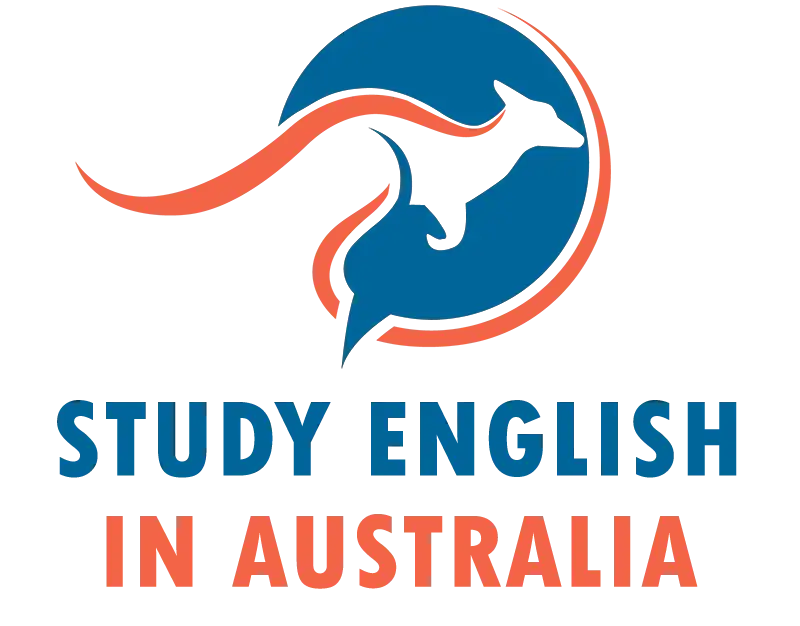Oficial de Imigração (ANZSCO 599512)
Imigrar para a Austrália é um sonho para muitas pessoas que buscam melhores oportunidades e alta qualidade de vida. No entanto, o processo de imigração pode ser complexo e requer planeamento e preparação cuidadosos. Este artigo serve como um guia completo para imigração para a Austrália, fornecendo informações detalhadas sobre o processo de inscrição, opções de visto e requisitos de elegibilidade. Esteja você considerando uma migração qualificada, patrocínio familiar ou inovação empresarial, este artigo o ajudará a navegar no processo de imigração e a tomar decisões informadas.
Compreendendo o processo de imigração
O processo de imigração para a Austrália envolve várias etapas e requer uma análise cuidadosa. Os candidatos devem compreender o processo para garantir uma inscrição tranquila e bem-sucedida. Aqui estão as principais etapas envolvidas no processo de imigração:
- Pesquisa e planejamento
- Avaliação de elegibilidade
- Reunindo os documentos necessários
- Alojamento da Inscrição
- Avaliações médicas e de caráter
- Decisão e concessão de visto
Antes de iniciar o processo de imigração, é essencial realizar uma pesquisa completa sobre as políticas de imigração da Austrália, opções de visto e requisitos de elegibilidade. Esta pesquisa ajudará você a determinar o caminho de visto mais adequado para suas circunstâncias.
Depois de identificar o caminho do visto, você deverá avaliar sua elegibilidade com base nos requisitos específicos definidos pelo governo australiano. Cada categoria de visto tem critérios diferentes relacionados à idade, habilidades, qualificações, experiência profissional e proficiência no idioma inglês.
Depois de determinar sua elegibilidade, você precisa reunir os documentos necessários para apoiar seu pedido de visto. Esses documentos podem incluir certificados educacionais, registros de emprego, demonstrações financeiras, documentos de identidade e prova de proficiência na língua inglesa.
Depois de reunir todos os documentos necessários, você poderá prosseguir com a apresentação do seu pedido de visto. A inscrição pode ser enviada on-line através do site oficial do Departamento de Assuntos Internos. É crucial fornecer informações precisas e completas para evitar atrasos ou rejeições.
Como parte do processo de imigração, você deverá se submeter a exames médicos e fornecer autorizações de caráter. Essas avaliações garantem que você atenda aos requisitos de saúde e caráter definidos pelo governo australiano.
Depois de enviar sua inscrição, ela será avaliada pelo Departamento de Assuntos Internos. O tempo de processamento varia dependendo da categoria do visto e das circunstâncias individuais. Assim que a decisão for tomada, você será notificado do resultado e, se for bem-sucedido, receberá o visto.
Opções de visto para imigração para a Austrália
A Austrália oferece uma variedade de opções de vistos para pessoas que desejam imigrar para o país. As categorias de vistos são projetadas para atender a diferentes circunstâncias e requisitos. Aqui estão algumas das principais opções de visto para imigração para a Austrália:
Migração qualificada
- Visto Independente Qualificado (Subclasse 189): Este visto é para trabalhadores qualificados que não são patrocinados por um empregador, estado ou território. Ele permite que indivíduos vivam e trabalhem permanentemente em qualquer lugar da Austrália.
- Visto Nomeado para Qualificado (Subclasse 190): Este visto requer indicação de um governo estadual ou territorial. Oferece residência permanente a trabalhadores qualificados que desejam viver e trabalhar em um estado ou território específico.
- Visto Regional (Provisório) de Trabalho Qualificado (Subclasse 491): Este visto é para trabalhadores qualificados nomeados por um governo estadual ou territorial ou patrocinados por um membro da família elegível que resida em uma área regional designada. Ele fornece um caminho para a residência permanente após um determinado período.
Patrocínio Familiar
- Visto de Parceiro (Subclasses 820 e 801): Este visto permite que indivíduos se juntem ao seu companheiro ou cônjuge australiano. Requer um relacionamento genuíno e contínuo.
- Visto de Pai (Subclasses 103, 143, 173, 804 e 864): Esses vistos são para pais de cidadãos australianos, residentes permanentes ou cidadãos elegíveis da Nova Zelândia. Eles permitem que os pais vivam na Austrália temporária ou permanentemente.
- Visto de Criança (Subclasses 101, 102, 445 e 802): Esses vistos são para filhos dependentes de cidadãos australianos, residentes permanentes ou cidadãos elegíveis da Nova Zelândia. Eles permitem que crianças vivam na Austrália temporária ou permanentemente.
Programa de Inovação e Investimento Empresarial
- Visto (Provisório) de Inovação e Investimento Empresarial (Subclasse 188): Este visto é para indivíduos que desejam estabelecer, desenvolver ou gerenciar um negócio novo ou existente na Austrália. Requer nomeação por um governo estadual ou territorial.
- Visto de Talento Empresarial (Permanente) (Subclasse 132): Este visto é para empresários ou empreendedores de alto calibre que desejam investir em umnegócios novos ou existentes na Austrália. Requer nomeação por um governo estadual ou territorial ou pela Austrália.
Nomeação de Estado e Território
- Cada estado e território da Austrália tem seu programa de nomeação, que permite nomear trabalhadores qualificados que atendam às suas necessidades específicas. Esses programas estão alinhados com as categorias de vistos de migração qualificados e fornecem pontos adicionais e processamento prioritário.
Migração qualificada
A migração qualificada é um dos caminhos mais comuns para indivíduos que desejam imigrar para a Austrália. O objetivo é suprir a escassez de competências no país e atrair profissionais altamente qualificados. Aqui está uma visão geral do processo de migração qualificada:
Avaliação de habilidades
Antes de solicitar um visto de migração qualificada, os candidatos devem passar por uma avaliação de habilidades por uma autoridade de avaliação relevante. A autoridade avaliadora avalia as qualificações, experiência profissional e habilidades do candidato para garantir que eles atendam aos padrões exigidos para a ocupação indicada.
Manifestação de Interesse (EOI)
Depois de obter uma avaliação de competências positiva, os candidatos devem enviar uma Manifestação de Interesse (EOI) através do sistema SkillSelect. O EOI fornece informações sobre as habilidades, qualificações e experiência profissional do candidato. Também indica a subclasse de visto na qual eles estão interessados.
Teste de Pontos
Os vistos de migração qualificados são testados por pontos, o que significa que os candidatos devem atingir um limite mínimo de pontos para serem elegíveis. Os pontos são concedidos com base em fatores como idade, proficiência na língua inglesa, qualificações, experiência profissional e outros critérios relevantes.
Convite para inscrição
Depois que uma EOI for enviada, os candidatos poderão ser convidados a solicitar um visto de migração qualificada se atenderem ao requisito mínimo de pontos e sua profissão estiver em demanda. Os convites são emitidos periodicamente com base no número de vagas de visto disponíveis e nos EOIs de maior classificação.
Solicitação de visto
Depois de receber um convite, os solicitantes têm um período específico para apresentar seu pedido de visto. A inscrição deve incluir todos os documentos exigidos, como documentos de identidade, resultados de avaliações de habilidades, resultados de testes de inglês e autorizações de saúde e caráter.
Decisão e concessão de visto
O Departamento de Assuntos Internos avalia o pedido de visto e toma uma decisão. Se o pedido for aprovado, o requerente receberá um visto para viver e trabalhar na Austrália. O visto poderá ser concedido por período temporário ou permanente, dependendo da subclasse.
É importante observar que o processo de migração qualificada pode ser competitivo e o atendimento aos requisitos mínimos não garante convite ou aprovação de visto. Candidatos com pontuações mais altas e ocupações com alta demanda têm maiores chances de sucesso.
Patrocínio Familiar
O patrocínio familiar é um caminho para indivíduos que têm familiares próximos morando na Austrália. Permite-lhes juntar-se aos seus familiares e viver no país de forma permanente ou temporária. Aqui estão as principais opções de visto de patrocínio familiar:
Visto de Parceiro
O Partner Visa permite que indivíduos se juntem ao seu parceiro ou cônjuge australiano. Está disponível para indivíduos que mantêm relacionamentos genuínos e contínuos com cidadãos australianos, residentes permanentes ou cidadãos elegíveis da Nova Zelândia. O visto é concedido em duas etapas: temporário e permanente.
Visto de Pai
Os vistos de pais são para pais de cidadãos australianos, residentes permanentes ou cidadãos elegíveis da Nova Zelândia. Existem várias subclasses disponíveis, incluindo o Visto de Pai Contributivo e o Visto de Pai Idoso. Esses vistos permitem que os pais vivam na Austrália temporária ou permanentemente.
Visto de criança
Os vistos infantis são para filhos dependentes de cidadãos australianos, residentes permanentes ou cidadãos elegíveis da Nova Zelândia. O visto permite que crianças vivam na Austrália temporária ou permanentemente, dependendo da subclasse.
Os vistos de patrocínio familiar exigem o patrocínio de um membro da família elegível e o atendimento a requisitos específicos relacionados ao relacionamento, idade e dependência.
Programa de Inovação e Investimento Empresarial
O Programa de Inovação e Investimento Empresarial (BIIP) foi desenvolvido para atrair empresários, empreendedores e investidores para a Austrália. Oferece uma gama de opções de vistos para indivíduos interessados em estabelecer, desenvolver ou administrar um negócio no país. Aqui estão as principais opções de visto do BIIP:
Visto de Inovação Empresarial e Investimento (Provisório) (Subclasse 188)
Este visto é para indivíduos que desejam estabelecer, desenvolver ou gerenciar um negócio novo ou existente na Austrália. Requer nomeação por um governo estadual ou territorial e é concedido por um período provisório.
Visto de Talento Empresarial (Permanente) (Subclasse 132)
Este visto é para pessoas de alto calibreproprietários de empresas ou empreendedores que desejam investir em um negócio novo ou existente na Austrália. Requer nomeação por um governo estadual ou territorial ou Austrade e fornece residência permanente.
O BIIP oferece caminhos para indivíduos com diferentes experiências empresariais e capacidades de investimento. Cada subclasse de visto tem requisitos específicos relacionados a fundos de investimento, experiência empresarial e planos de negócios.
Nomeação de Estado e Território
Os governos estaduais e territoriais da Austrália têm seus programas de nomeação, o que lhes permite nomear trabalhadores qualificados que atendam às suas necessidades específicas. A nomeação de estados e territórios pode fornecer pontos adicionais e processamento prioritário para pedidos de vistos de migração qualificados. Aqui estão os principais aspectos da nomeação de estado e território:
Critérios de elegibilidade
Cada estado e território tem seus critérios de elegibilidade para indicação. Esses critérios podem incluir listas de ocupações, requisitos mínimos de pontuação, experiência profissional, proficiência na língua inglesa e compromisso de viver e trabalhar no estado ou território.
Listas de Ocupações
Os governos estaduais e territoriais mantêm suas listas de ocupações, conhecidas como Listas de Ocupações Nomeadas pelo Estado. Essas listas especificam as ocupações demandadas no respectivo estado ou território.
Pontos Adicionais
A indicação de estado e território pode fornecer pontos adicionais para o teste de pontos, aumentando as chances de receber um convite para solicitar um visto de migração qualificada.
Processo de inscrição
O processo de inscrição para indicação de estado e território varia dependendo do estado ou território. Geralmente envolve o envio de uma manifestação de interesse, o cumprimento dos requisitos de elegibilidade e o recebimento de um convite para se candidatar à indicação.
A indicação por estado e território é uma excelente opção para indivíduos que possuem habilidades e qualificações específicas necessárias em um determinado estado ou território. Ele permite que os solicitantes aumentem suas chances de receber um convite e acelera o tempo de processamento do visto.
Requisitos de elegibilidade para imigração
Os requisitos de elegibilidade para imigração para a Austrália variam de acordo com a categoria do visto e as circunstâncias individuais. Aqui estão alguns requisitos de elegibilidade comuns a serem considerados:
Idade
A maioria das categorias de visto tem restrições de idade. Para migração qualificada, o limite de idade é normalmente de 45 anos ou menos, embora possam ser aplicadas algumas isenções.
Habilidades e Qualificações
Os vistos de migração qualificados exigem que os candidatos tenham habilidades e qualificações relevantes para a ocupação indicada. Geralmente é necessária uma avaliação positiva de competências por uma autoridade de avaliação relevante.
Experiência Profissional
Os vistos de migração qualificados geralmente exigem um período mínimo de experiência profissional relevante. A experiência deve ser na ocupação indicada ou em uma área intimamente relacionada.
Proficiência na língua inglesa
Os candidatos devem demonstrar proficiência na língua inglesa por meio de testes de idioma reconhecidos, como IELTS ou PTE. A pontuação exigida varia dependendo da categoria do visto e da ocupação.
Requisitos de saúde e caráter
Todos os solicitantes de visto devem atender aos requisitos de saúde e caráter. Isso envolve a realização de exames médicos e a obtenção de autorizações policiais de todos os países onde residiu por um determinado período.
Capacidade Financeira
Algumas categorias de vistos, como os vistos de Inovação Empresarial e Investimento, exigem que os indivíduos demonstrem sua capacidade financeira para estabelecer ou investir em um negócio na Austrália.
É essencial analisar cuidadosamente os requisitos específicos de elegibilidade para a categoria de visto escolhida e procurar aconselhamento profissional, se necessário. O cumprimento dos requisitos mínimos não garante o sucesso do pedido de visto, pois outros fatores, como a procura e as cotas de vistos, também podem influenciar o resultado.
Requisitos do documento
Ao solicitar um visto australiano, os solicitantes devem fornecer documentos comprovativos para demonstrar sua elegibilidade e atender aos requisitos do visto. Os requisitos específicos de documentos variam dependendo da categoria do visto e das circunstâncias individuais. Aqui estão alguns documentos comuns frequentemente exigidos para solicitações de visto:
Documentos de Identidade
Isso inclui passaporte válido, certidão de nascimento e carteira de identidade nacional.
Documentos Educacionais
São normalmente exigidos históricos acadêmicos, diplomas, títulos e qualificações relevantes para a ocupação indicada. É imprescindível fornecer cópias autenticadas ou documentos originais.
Documentos de Experiência Profissional
Currículos, contratos de trabalho, cartas de referência e contracheques podem ser usados para demonstrar experiência de trabalho na ocupação indicada.
Proficiência na língua inglesa
Os resultados dos testes de idioma, como as pontuações do IELTS ou PTE, sãonecessário demonstrar proficiência na língua inglesa.
Liberações de Saúde e Personagem
Os candidatos devem ser submetidos a exames médicos realizados por médicos aprovados pelo Departamento de Assuntos Internos. Também são necessárias autorizações policiais de todos os países onde residiu por um determinado período.
Demonstrações Financeiras
Os vistos de inovação empresarial e investimento podem exigir demonstrações financeiras, planos de negócios e comprovantes de fundos de investimento.
É crucial fornecer informações precisas e completas e garantir que todos os documentos sejam genuínos e atendam aos requisitos específicos definidos pelo Departamento de Assuntos Internos. O não fornecimento dos documentos exigidos pode resultar em atrasos ou recusas de visto.
Lista de Habilidades Prioritárias (SPL)
A Lista de Habilidades Prioritárias (SPL) é uma lista abrangente de ocupações procuradas na Austrália. Identifica profissões que enfrentam escassez de competências e fornece informações sobre as necessidades económicas e de mão-de-obra do país. O SPL é atualizado anualmente pela Jobs and Skills Australia, levando em consideração vários fatores, como tendências do setor, análise do mercado de trabalho e consulta às partes interessadas.
O SPL categoriza as ocupações com base em sua demanda e prioridade, indicando se elas enfrentam escassez (S), não têm escassez (NS) ou têm escassez regional (R). A lista foi elaborada para orientar decisões políticas, alocação de vistos e programas de nomeação de estados e territórios.
O SPL é um recurso essencial para indivíduos que planejam imigrar para a Austrália. Isso os ajuda a identificar ocupações com maiores chances de receber convites e aprovações de vistos. Ao escolher profissões no SPL, os candidatos podem alinhar suas habilidades e qualificações com as necessidades da força de trabalho australiana, aumentando suas chances de sucesso.
Conclusão
Imigrar para a Austrália oferece inúmeras oportunidades para indivíduos que buscam melhor qualidade de vida, progressão na carreira e crescimento pessoal. No entanto, o processo de imigração pode ser complexo e requer planeamento e preparação cuidadosos. Este guia completo fornece informações detalhadas sobre o processo de imigração, opções de visto, requisitos de elegibilidade e requisitos de documentos.
Ao compreender o processo de imigração e realizar pesquisas completas, os indivíduos podem tomar decisões informadas e aumentar suas chances de obter sucesso no pedido de visto. É altamente recomendável buscar aconselhamento profissional de agentes de migração registrados ou advogados de imigração para navegar pelas complexidades do sistema de imigração.
Lembre-se de que as políticas e requisitos de imigração estão sujeitos a alterações e é essencial manter-se atualizado com as informações mais recentes do Departamento de Assuntos Internos e dos governos estaduais e territoriais relevantes.
Com planejamento, preparação e orientação adequados, os indivíduos podem realizar seu sonho de imigrar para a Austrália e aproveitar as muitas oportunidades e benefícios que o país tem a oferecer.
599512: Immigration Officer
Current Demand / Future Demand
No invitations were given
Possible Visa Options
| Visa Type | Eligibility | Caveats / Mandatory Assessment | Legislative Instrument | MLTSSL | STSOL | ROL |
|---|---|---|---|---|---|---|
| 189Skilled Independent | LIN 19/051 | |||||
| 190Skilled Nominated | LIN 19/051 | |||||
| 491Skilled Work Regional | LIN 19/051 | |||||
| 491FFamily Sponsored | LIN 19/051 | |||||
| 485Stream: Graduate Work | LIN 19/051 | |||||
| 482TSS: Medium & Short term | LIN 19/048 | |||||
| DAMALabour Agreement | ||||||
| 186ENS: TRT & DE | LIN 19/049 | |||||
| 187RSMS: TRT | LIN 19/047 | |||||
| 494SESR: Employer Sponsored | LIN 19/219 LIN 19/260 | |||||
| 407Training: Enhance Skills | LIN 19/050 |
State/Territory Eligibility Summary Table
- Occupation is IN the State/Territory Skilled Occupation List and MAY be eligible if you meet the specific State/Territory nomination requirements
- Occupation is IN the Skilled List (MLTSSL, STSOL or ROL list) and MAY be eligible if you meet the State/Territory nomination requirements
- Occupation MAY NOT be eligible
- Stream NOT applicable to the visa Subclass
- Migration Program currently CLOSED
State/Territory Eligibility Details
Australian Capital Territory
ACT Critical Skills List
599512: Immigration Officer
| Subclass 190 | Subclass 491 | Nomination places available per month |
|---|---|---|
General Requirements
Candidates must register their interest in ACT nomination by completing a score-based Canberra Matrix
Candidates may be nominated under four streams:
- Canberra Residents
- Overseas Applicants
- Doctorate Streamlined nomination
- Significant economic benefit
Requirements for Canberra Residents
Candidates applying for Subclass 190 nomination must:
- Have an occupation on the ACT Critical Skills List; or be the primary holder of a 457/482 visa sponsored by an ACT employer for the last 6 months; or be the majority owner of an eligible ACT business claiming Matrix points in the Small Business Owner category.
- Have lived in Canberra for the last 6 months and continue until invitation.
- Have worked in Canberra for at least 26 weeks (overall hourly and/or earnings requirements apply).
- Have ‘Proficient’ or ‘Superior’ English (ANZSCO 351311 Chef, and ANZSCO skill level 3 to 5 are exempt).
Candidates applying for Subclass 491 nomination must:
- Have an occupation on the ACT Critical Skills List; or be the primary holder of a 457/482 visa sponsored by an ACT employer for the last 3 months; or be the majority owner of an eligible ACT business claiming Matrix points in the Small Business Owner category.
- Have lived in Canberra for the last 3 months and continue until invitation.
- Have worked in Canberra for at least 13 weeks (overall hourly and/or earnings requirements apply).
- Have ‘Competent’ English.
Requirements for Overseas Applicants
Candidates applying for Subclass 190 nomination must:
- Have an occupation on the ACT Critical Skills List.
- Have at least three years full time, post graduate relevant work experience in your nominated occupation in the last five years.
- Have researched the ACT labour market and be satisfied with being employable in Canberra.
- Have ‘Proficient’ or ‘Superior’ English (ANZSCO 351311 Chef, and ANZSCO skill level 3 to 5 are exempt).
- Be living overseas and have not lived in Australia for the last 12 months.
- Have access to sufficient settlement funds.
Candidates applying for Subclass 491 nomination must:
- Have an occupation on the ACT Critical Skills List.
- Have at least one year full time, post graduate relevant work experience in your nominated occupation in the last five years.
- Have researched the ACT labour market and be satisfied with being employable in Canberra.
- Have ‘Competent’ English.
- Be living overseas and have not lived in Australia for the last 12 months.
- Have access to sufficient settlement funds.
Doctorate Streamlined nomination
Candidates must:
- Have lived in Canberra for the last 12 months (interstate and overseas residents may be eligible if they completed their doctoral degree from an ACT within the last two years).
- Have completed a professional or research doctoral degree at an ACT university.
Significant economic benefit
- Invitation can ONLY be initiated by the ACT government.
New South Wales
Subclass 190 Basic Eligibility criteria
- Have an occupation on the Department’s relevant Skilled List (MLTSSL, STSOL or ROL).
- Candidates must be currently residing in NSW or Offshore and have continuously done so for a minimum of 6 months.
- Have submitted an EOI seeking Subclass 190 nomination for NSW only
NSW Target Sectors
To more effectively respond to changing skills shortages across the state, NSW is transitioning from the publication of an eligible ANZSCO skilled list to adopting a sector-focused approach.
The sectors identified as experiencing critical skills shortages in NSW include:
- Health
- Education
- Information and Communication Technology (ICT)
- Infrastructure
- Agriculture
Important: Although NSW prioritizes target sectors, high-ranking EOIs submitted in non-priority sectors may also be considered. However, it's important to understand that the chances of receiving an invitation are exceptionally low due to high demand and limited spots.
Subclass 491 Basic Eligibility criteria
Candidates may be nominated under two pathways:
- Pathway 1 – Apply directly to an RDA office (see participating regions below).
- Stream A - Established work history with a regional NSW-based employer
- Stream B - My skills are required in regional NSW
- Pathway 2 – Be invited by Investment NSW.
Requirements for Pathway 1 - Stream A
- Candidates must have an eligible occupation.
- Candidates must be currently living and working in a designated regional area of NSW and have continuously done so for the past 12 months.
- The qualifying employment must be in the nominated (or closely related) occupation, with the same employer, deemed skilled by NSW and paid a minimum of $53,900 (pro-rated if under 38 hours/week).
Requirements for Pathway 1 - Stream B
- Candidates must have an eligible occupation within an ANZSCO on the NSW Skills Lists (Pathway 1 - Stream B).
- Candidates must be currently residing in NSW or Offshore and have continuously done so for a minimum of 3 months.
Requirements for Pathway 2
- Candidates must have an eligible occupation within an ANZSCO on the NSW Skills Lists (Pathway 2)
- Candidates must be currently residing in NSW or Offshore and have continuously done so for a minimum of 3 months.
Participating regions for Pathway 1 are:
- RDA Central Coast
- RDA Central West
- RDA Far South Coast
- RDA Far West
- RDA Hunter
- RDA Illawarra
- RDA Mid North Coast
- RDA Murray
- RDA Northern Inland
- RDA Northern Rivers
- RDA Orana
- RDA Riverina
- RDA Southern Inland
- RDA Sydney
Northern Territory
General Requirements
Candidates may be nominated under three streams/pathways:
Requirements for NT Residents
Candidates must:
- Have been residing in the NT for at least 12 consecutive months, with no migrating dependants residing in another part of Australia.
- Demonstrate full-time employment in the NT in an eligible occupation (i.e., nominated occupation or related to it) for at least 6 consecutive months immediately before applying (the employment must be available for at least 12 months). If the occupation is not “an eligible occupation”, a candidate may exceptionally still be considered if employed in health, aged or disabled care, education (incl. childcare), and hospitality.
- Demonstrate that the position is based in the NT (serviced office spaced or hot desking generally not accepted) and the employer has been training for at least 12 months in the NT.
Requirements for Offshore Applicants
Candidates must:
- Have post-qualification work experience of at least 1 year in the nominated occupation (additional work experience may be required under the priority occupations stream).
- Demonstrate a genuine commitment to live and work in NT.
- Provide evidence of financial capacity.
- Meet the criteria relevant to one of the 3 streams:
- Have an occupation on the Northern Territory Offshore Migration Occupation List (NTOMOL).
- Meet any additional work experience required as specified on the NTOMOL. Please, see below:
- Have an eligible family member in the NT who is a usual resident and has lived in the NT for at least 12 months. This person must be an Australian citizen, a permanent resident, or an Eligible New Zealand citizen or hold an eligible visa (Subclass 491, 494, 489 or a bridging visa associated with an application for a Subclass 887 or 191 visa). The eligible relative must confirm their willingness to provide settlement support.
- Demonstrate genuine and sustained efforts to obtain employment from an NT employer.
- Have a job offer in the nominated occupation in an NT business that has been actively operating in the NT for at least 12 months.
Priority occupation stream
NT Offshore Migration Occupations List (NTOMOL)
599512: Immigration Officer
| Subclass 190 | Subclass 491 | Comments |
|---|---|---|
NT Family stream
NT Job Offer stream
NT Graduates
Candidates must:
- Have completed two years of study in the NT.
- Have completed one or more qualifications at an NT-based institution in a single tertiary course or a set of nested tertiary courses.
- Demonstrate genuine and sustained efforts to obtain employment from an NT employer in the nominated occupation.
Candidates who:
- hold a Graduate (Subclass 485) visa that expires after 1 July 2024 or who are eligible to apply for a Graduate (Subclass 485) visa, are unlikely to be offered a nomination in this program year.
- are working in their nominated occupations or in critical sectors (healthcare, education and hospitality) would be prioritised.
Queensland
2023-24 Queensland Skilled Migration Program
599512: Immigration Officer
| Type | Subclass 190 | Subclass 491 | Minimum post-qualification work experience requirement |
|---|---|---|---|
| Offshore candidates (QSOL list) | |||
| Living in QLD (Skilled List) |
General Requirements
Candidates may be nominated under four streams:
- Skilled workers living in QLD
- Skilled workers living Offshore
- Graduates of a QLD University
- Small Business Owners in regional QLD
Requirements for 'Skilled workers living in QLD'
Candidates must:
- Have a points-test result of 75 or higher for Subclass 190 (except for Trades occupations, which require 70 or higher) or, 65 or higher for Subclass 491.
- Have an occupation on the Department’s relevant Skilled List (MLTSSL, STSOL or ROL).
- Have Competent English or higher (6.0 on IELTS / 50 on PTE).
- Have been living in QLD (regional for Subclass 491), undertaking full-time post-qualification employment (30 hrs/week) in the nominated occupation for ‘3 months immediately before EOI lodgement’ for Subclass 190 or, ‘at the time of your EOI lodgement’ for Subclass 491.
- Provide evidence of ongoing full-time employment in QLD for a further 12 months for Subclass 190 or, 6 months for Subclass 491 (virtual office is not accepted).
Requirements for 'Skilled workers living Offshore'
Candidates must:
- Have a points-test result of 75 or higher for Subclass 190 (except for Trades occupations, which require 70 or higher) or, 65 or higher for Subclass 491.
- Have an eligible occupation on the ‘Queensland Skilled Occupation List’ (QSOL).
- Have Competent English or higher (6.0 on IELTS / 50 on PTE).
- Provide evidence of the required years of post-study work experience as per the QSOL and be employed in the nominated occupation when invited.
Skilled workers living Offshore
Requirements for 'Graduates of a QLD university'
Candidates must:
- Have a points-test result of 75 or higher for Subclass 190 or, 65 or higher for Subclass 491.
- Have an occupation on the Department’s relevant Skilled List (MLTSSL, STSOL or ROL).
- Be living in Queensland (regional for Subclass 491).
- Have Competent English or higher (6.0 on IELTS / 50 PTE).
- Have completed 100% of their studies in Queensland and graduated in the last two years.
- Meet the additional criteria for their qualification level as indicated below.
PhD or Doctorate Graduates (190 and 491) must:
- Have had a positive decision on their thesis.
Master’s Graduates in STEM or Agriculture fields (190 and 491) must:
- Be employed full-time (30 hrs/week) in the nominated occupation (or ANZSCO Skill Level 1).
Master’s Graduates - not in STEM or Agriculture fields (190 and 491) must:
- Be employed full-time (30 hrs/week) in the nominated occupation (or ANZSCO Skill Level 1).
- Have a grade point average of 6.0 or higher for Subclass 190 or 5.0 for Subclass 491.
Bachelor’s Graduates (190 and 491) must:
- Be employed full-time (30 hrs/week) in the nominated occupation (or ANZSCO Skill Level 1).
- Have a grade point average of 6.0 or higher for Subclass 190 or 5.0 for Subclass 491.
Requirements for 'Small business owners in regional QLD'
Candidates must:
- Have an occupation on the Department’s relevant Skilled List (MLTSSL, STSOL or ROL).
- Have full-time work rights and not currently be studying.
- Be living in regional Queensland.
- Be working for the business full-time (30 hrs/week)
- Have 100% ownership of the business.
- Own and operate a business in regional Queensland.
- Meet the criteria for Pathway 1 or Pathway 2 as indicated below.
Pathway 1
- Have purchased an existing business for a minimum of $100,000.
- The business must be a pre-existing business (operating for a minimum of 2 years) trading for a minimum of six months prior to lodging an Expression of Interest (EOI).
- The business must employ at least one Australian resident (20 hrs/week) or two employees working 10 hrs/week.
Pathway 2
- Have started a business and have continuously run that business for a minimum of two years. Must be generating a profit and have a turnover of $200,000 in the 12 months prior to application.
Small Business Owners in regional QLD
South Australia
599512: Immigration Officer
2023-24 South Australia's Skilled Occupation List
| Stream | Subclass 190 | Subclass 491 | Minimum Points |
|---|---|---|---|
| Graduates | |||
| Working in South Australia | |||
| Highly Skilled & Talented | |||
| Offshore |
General Requirements
To be selected to apply for State nomination, most candidates must complete and submit a Registration of Interest (ROI) for South Australia via their Migration portal.
Candidates may be nominated under four streams:
Requirements for 'South Australian Graduates'
Candidates must:
- Have an occupation under the Graduate stream on South Australia’s Skilled Occupation list.
- Currently live and work in South Australia.
- Have at least Competent English.
- Have completed their qualification at a South Australian education. The course must be CRICOS registered with a minimum of 46 CRICOS weeks and meet the minimum qualification level listed for the occupation on South Australia’s Skilled Occupation list. At least 50% of the qualification must have been completed in SA, and the candidate must have resided in the State for at least 1 year during their studies.
- Have been residing in South Australia for at least the last 12 months.
- Have been working for the last 6 months and be currently employed (at least 30 hr/week). Employment must be related to the nominated occupation.
Requirements for 'Working in South Australia'
Candidates must:
- Have an occupation under the Working in SA stream on South Australia’s Skilled Occupation list.
- Currently live and work in South Australia.
- Have at least Competent English.
- Have been residing in South Australia for at least the last 12 months.
- Have been working for the last 6 months and be currently employed (at least 30 hr/week). Employment must be related to the nominated occupation.
Requirements for 'Highly Skilled and Talented'
Candidates must:
- Currently live and work in South Australia, interstate or overseas.
- Have at least Competent English.
- Meet employment requirements if working or have been offered a position in South Australia. Employer requirements include an existing business of at least 12 months, located and operating in SA for the past 12 months and with an annual turnover of at least $4 million unless an exception applies.
- Meet additional requirements if:
- Candidate with Hi-Tech or Digital industry experience, including at least 2 years of experience in one of South Australia’s critical technology professions.
- Candidate with Defence or Space industry experience, including having already commenced employment in a relevant organisation and currently working full-time in South Australia. Overseas candidates must demonstrate relevant experience and intend to relocate to South Australia.
Requirements for 'Offshore'
Candidates must:
- Currently residing offshore.
Tasmania
599512: Immigration Officer
| Occupation Lists | Eligibility | Notes & caveats |
|---|---|---|
| Critical Roles List | ||
| Tasmanian Onshore Skilled Occupation List (TOSOL) | ||
| Overseas Skilled Occupation Profiles (OSOP) |
Lists
- Critical Roles List: An occupation included in the 'Critical Roles List' will be prioritised in the Migration Tasmania Gateway.
- Tasmanian Onshore Skilled Occupation List (TOSOL): An occupation included in the TOSOL is eligible for subclass 190 nomination after 6 months employment in a closely related role. Occupations that are not on the TOSOL are eligible for subclass 190 nomination in the 'Tasmanian Skilled Employment' pathway after 15 months of related employment.
- Overseas Skilled Occupation Profiles (OSOP): An occupation included in the OSOP list is eligible for the 'Overseas Applicant (OSOP) – Invitation Only' pathway (subclass 491 only).
Pathway Eligibility
599512: Immigration Officer
| Pathway | Subclass 190 | Subclass 491 |
|---|---|---|
| Tasmanian Skilled Employment | ||
| Tasmanian Skilled Graduate | ||
| Tasmanian Established Resident | ||
| Tasmanian Business Operator | ||
| Overseas Applicant (Job Offer) | ||
| Overseas Applicant (OSOP) – Invitation Only |
- Occupation is IN the state occupation list and MAY be eligible if you meet the specific state nomination requirements
- Occupation is IN the Skilled List and MAY be eligible if you meet the state nomination requirements
- Occupation MAY NOT be eligible
- Stream NOT applicable to the visa Subclass
Victoria
Victoria’s 2023-24 Skilled Visa Nomination Program
To be selected to apply for Victorian skilled visa nomination, candidates must complete and submit a Registration of Interest (ROI) for Victorian State Visa Nomination.
All occupations included in the Skilled List(MLTSSL, STSOL or ROL list) are eligible for nomination if the candidate meets the Victoria nomination criteria.
The following occupation groups are prioritised:
- Health
- Social services
- Information Communication Technology (ICT)
- Early childhood, primary, secondary, and special education teachers
- Advanced manufacturing
- Infrastructure
- Renewable energy
- Hospitality and tourism (491 visa only)
General Requirements for 'Skilled Nominated visa (subclass 190)'
Candidates applying for Subclass 190 nomination must:
- Have an occupation on the Skilled List (MLTSSL, STSOL or ROL list).
- Have had their Registration of Interest (ROI) selected.
- If onshore, be living in Victoria at the time of nomination.
- If onshore and claiming earnings from skilled employment in the ROI, the employer must be physically located in Victoria.
- Be committed to living in Victoria.
General Requirements for 'Skilled Work Regional (Provisional) visa (subclass 491)'
Onshore Candidates must:
- Have an occupation on the Skilled List (MLTSSL, STSOL or ROL list).
- Have had their Registration of Interest (ROI) selected.
- Be living and working in skilled employment in regional Victoria at the time of nomination. Candidates who are not working, or working in non-skilled employment, are not eligible to apply for nomination.
- Be committed to living in regional Victoria.
Offshore Candidates must:
- Have an occupation on the Skilled List (MLTSSL, STSOL or ROL list). Offshore candidates for 491 visas with skills in healthcare, social services and education will be prioritised.
- Have had their Registration of Interest (ROI) selected.
- Be committed to living in regional Victoria.
Western Australia
Western Australia occupation lists (WASMOL Schedule 1 & 2, and Graduate)
599512: Immigration Officer
| Stream Type | Status | Subclass 190 | Subclass 491 | Minimum Points | Priority Occupation | Comments |
|---|---|---|---|---|---|---|
| Not Available |
General Requirements
Candidates may be nominated under two streams:
Applicants for the General stream must satisfy Schedule 1 or Schedule 2 criteria, depending on their occupation.
Schedule 1 criteria, candidates must have:
- An occupation on the WASMOL – Schedule 1 (Health & Medical Occupations).
- Competent English.
- At least one year of relevant Australian or overseas work experience.
- At least 6-months full-time contract of employment in Western Australia (only applicable for Subclass 190 visa applicants, and except for those invited through a WA building and construction industry sector occupation).
Schedule 2 criteria, candidates must have:
- An occupation on the WASMOL – Schedule 2.
- Competent English.
- At least 6-months full-time contract of employment in Western Australia (only applicable for Subclass 190 visa applicants, and except for those invited through a WA building and construction industry sector occupation).
WA Graduates must have:
- An occupation on the GOL.
- Studied at an accredited Western Australian educational institution, full-time and face-to-face, for at least two years.
- Completed a Cert. III or higher qualification in a Western Australian university, higher education provider, TAFE, registered training provider or English language provider.
- Competent English.
Migration Program Planning Levels 2023-24
State & Territory Visa Allocations 2023-24State / Territory Nominated Subclass 190 Work Regional Subclass 491 Business Innovation & Investment Program
(BIIP) ACT 600 600 0 NSW 2,650 1,500 0 NT 250 400 0 QLD 900 650 0 SA 1,100 1,200 0 TAS 600 600 0 VIC 2,700 600 0 WA 1,500 850 0 TOTAL 10,300 6,400 0
Skill streamVisa Category Allocations 2022-23 Allocations 2023-24 Employer Sponsored 35,000 36,825 Skilled Independent 32,100 30,375 Regional 34,000 32,300 State/Territory Nominated 31,000 30,400 Business Innovation & Investment 5,000 1,900 Global Talent (Independent) 5,000 5,000 Distinguished Talent 300 300 Total Skill stream 142,400 137,100
Family streamVisa Category Allocations 2022-23 Allocations 2023-24 Partner 40,500 40,500 Parent 8,500 8,500 Child 3,000 3,000 Other Family 500 500 Total Family stream 52,500 52,500 Special Eligibility 100 400 TOTAL Migration Program 195,000 190,000
| State / Territory | Nominated Subclass 190 | Work Regional Subclass 491 | Business Innovation & Investment Program (BIIP) |
|---|---|---|---|
| ACT | 600 | 600 | 0 |
| NSW | 2,650 | 1,500 | 0 |
| NT | 250 | 400 | 0 |
| QLD | 900 | 650 | 0 |
| SA | 1,100 | 1,200 | 0 |
| TAS | 600 | 600 | 0 |
| VIC | 2,700 | 600 | 0 |
| WA | 1,500 | 850 | 0 |
| TOTAL | 10,300 | 6,400 | 0 |
| Visa Category | Allocations 2022-23 | Allocations 2023-24 |
|---|---|---|
| Employer Sponsored | 35,000 | 36,825 |
| Skilled Independent | 32,100 | 30,375 |
| Regional | 34,000 | 32,300 |
| State/Territory Nominated | 31,000 | 30,400 |
| Business Innovation & Investment | 5,000 | 1,900 |
| Global Talent (Independent) | 5,000 | 5,000 |
| Distinguished Talent | 300 | 300 |
| Total Skill stream | 142,400 | 137,100 |
Family streamVisa Category Allocations 2022-23 Allocations 2023-24 Partner 40,500 40,500 Parent 8,500 8,500 Child 3,000 3,000 Other Family 500 500 Total Family stream 52,500 52,500 Special Eligibility 100 400 TOTAL Migration Program 195,000 190,000
| Visa Category | Allocations 2022-23 | Allocations 2023-24 |
|---|---|---|
| Partner | 40,500 | 40,500 |
| Parent | 8,500 | 8,500 |
| Child | 3,000 | 3,000 |
| Other Family | 500 | 500 |
| Total Family stream | 52,500 | 52,500 |
| Special Eligibility | 100 | 400 |
| TOTAL Migration Program | 195,000 | 190,000 |
ANZSCO version 1.3, cat. no. 1220.0
Sub-Major Group: 59 - Other Clerical and Administrative Workers
Minor Group: 599 - Miscellaneous Clerical and Administrative Workers
Unit Group: 5995 - Inspectors and Regulatory Officers
Description
Examines and assesses the entry of people from other countries, administers visas and residency applications according to immigration legislation, rules and policies, and, where necessary, uses legal powers to detain and remove illegal entrants.
Alternative Titles
There are no Alternative Titles for this occupation
Specialisations
There are no Specialisation Titles for this occupation
Alternative titles are any commonly used alternative title (or titles) for the occupation. These alternative titles have the same meaning as the principal title but may be less commonly used.
Specialisation titles are any commonly used titles which refer to a subset of jobs belonging to the occupation designated in the principal title. These jobs involve the performance of specialised tasks rather than the broader range of tasks usually performed in the occupation.
2023 Skills Priority List
The Skills Priority List (SPL) provides a detailed view of occupations in shortage in Australian and by each state and territory. The SPL is released annually by Jobs and Skills Australia
Occupation Ratings: S Shortage; NS No Shortage; R Regional Shortage
National Future Demand: Below economy average; At economy average; Above economy average
599512: Immigration Officer
| National Future Demand | National | ACT | NSW | NT | QLD | SA | TAS | VIC | WA |
|---|---|---|---|---|---|---|---|---|---|
| NS | NS | NS | NS | NS | NS | NS | NS | NS |
What is the Skills Priority List (SPL)?
Jobs and Skills Australia – Skills Shortages Analysis
Unit Group 5995: Inspectors and Regulatory Officers
Description
Administer and enforce government and corporate regulations and standards.
Indicative Skill Level 4
In Australia:
AQF Certificate II or III (ANZSCO Skill Level 4)
In New Zealand:
NZQF Level 2 or 3 qualification (ANZSCO Skill Level 4)
At least one year of relevant experience may substitute for the formal qualifications listed above. In some instances relevant experience and/or on-the-job training may be required in addition to the formal qualification.
Registration or licensing may be required.
Tasks
- Searching aircraft, vehicles, premises and people, and checking documents and goods to detect illegal activities such as undocumented cargo, prohibited goods and illegal aliens
- Examining and assessing visas and residency applications
- Testing applicants' ability to operate a motor vehicle, assessing applicants' suitability to hold learner's permits and probationary licences, and issuing learner's permits and probationary licences
- Identifying pest and weed problems and determining treatments and management
- Assessing claims for government benefits
- Carrying out random checks of taxation documents to detect non-compliance with taxation legislation
- Conducting visual checks of the mechanical, structural, electrical, pneumatic and hydraulic systems of railway wagons, carriages and locomotives for condition and correct classification
- Ensuring that train, tram and bus services are provided according to schedule, monitoring the cleanliness, presentation and condition of vehicles, and recommending improvements and changes to services
- Receiving and assessing applications for licences to use water, investigating the ability of water resources to meet new requirements, and conducting site inspections
Occupations in this Unit Group
- 599511: Customs Officer
- 599512: Immigration Officer
- 599513: Motor Vehicle Licence Examiner
- 599514: Noxious Weeds and Pest Inspector
- 599515: Social Security Assessor
- 599516: Taxation Inspector
- 599517: Train Examiner
- 599518: Transport Operations Inspector
- 599521: Water Inspector
- 599599: Inspectors and Regulatory Officers nec
Average Salary 2021
Unit Group 5995: Inspectors and Regulatory Officers
| Type | Weekly Earnings | Annual Salary | Average Age |
|---|---|---|---|
| Males | $ 1,645.10 | $ 85,545 | 42.4 |
| Females | $ 1,477.30 | $ 76,820 | 40.4 |
| Persons | $ 1,563.90 | $ 81,323 | 41.4 |
Australian Bureau of Statistics, 2013, ANZSCO - Australian and New Zealand Standard Classification of Occupations, 2013, Version 1.3, cat. no. 1220.0, https://www.abs.gov.au/ausstats/abs@.nsf/mf/1220.0
SkillSelect EOI Backlog
EOI Data Current to 30/09/2023
Total Count EOIs @ 30/09/2023
| Visa Type | Submitted | Invited | Lodged |
|---|---|---|---|
| 188 Business Innovation | 3,243 | 2,636 | |
| 189 Skilled Independent | 123,922 | 260 | 21,018 |
| 190 State/Territory Nominated | 228,592 | 779 | 36,154 |
| 491 State/Territory Nominated (Regional) | 188,646 | 583 | 22,859 |
| 491 Family Sponsored | 4,536 | <20 | 704 |
EOIs by Occupation & Visa Type
599512: Immigration Officer
189 Skilled Independent
190 State/Territory Nominated
491 State/Territory Nominated
491 Family Sponsored
Notes
- Counts of EOIs with less than 65 points are not shown.
- Counts which are less than 20 are shown as '<20'.
EOI Status
SUBMITTED an EOI that meets all requirements for all selected visa subclasses and has all fields completed can be submitted. Once submitted, points are attributed to the EOI based on the information provided. Submitted EOIs are eligible for selection in an invitation round.
INVITED an invitation to apply for a visa has been issued.
LODGED a visa application has been lodged using an invitation to apply for a visa.
This data draws from the SkillSelect EOI Dashboard and is thus as accurate as the information on that source. This information is intended to provide a general overview of the SkillSelect dataset in a specific point in time, rather than a real-time database.
Anzscosearch will provide this information as long as it remains available on the SkillSelect website.











